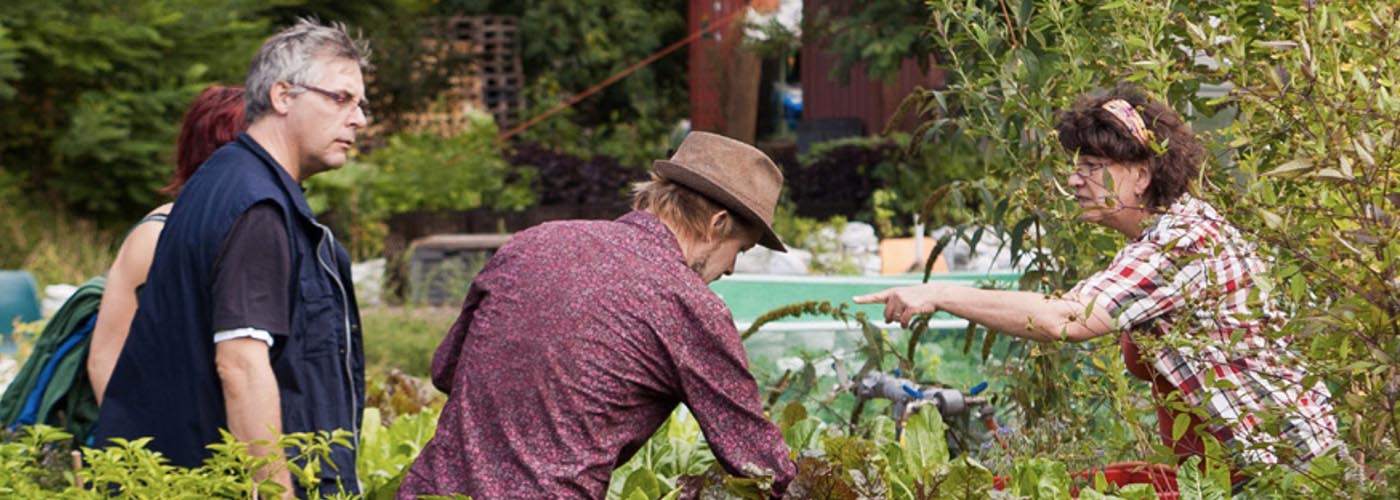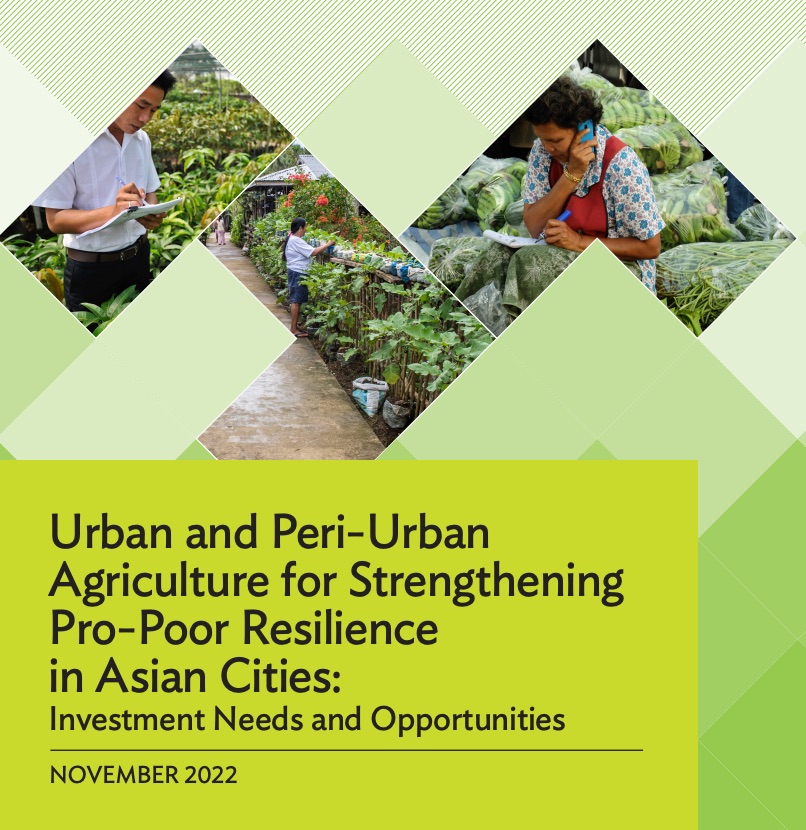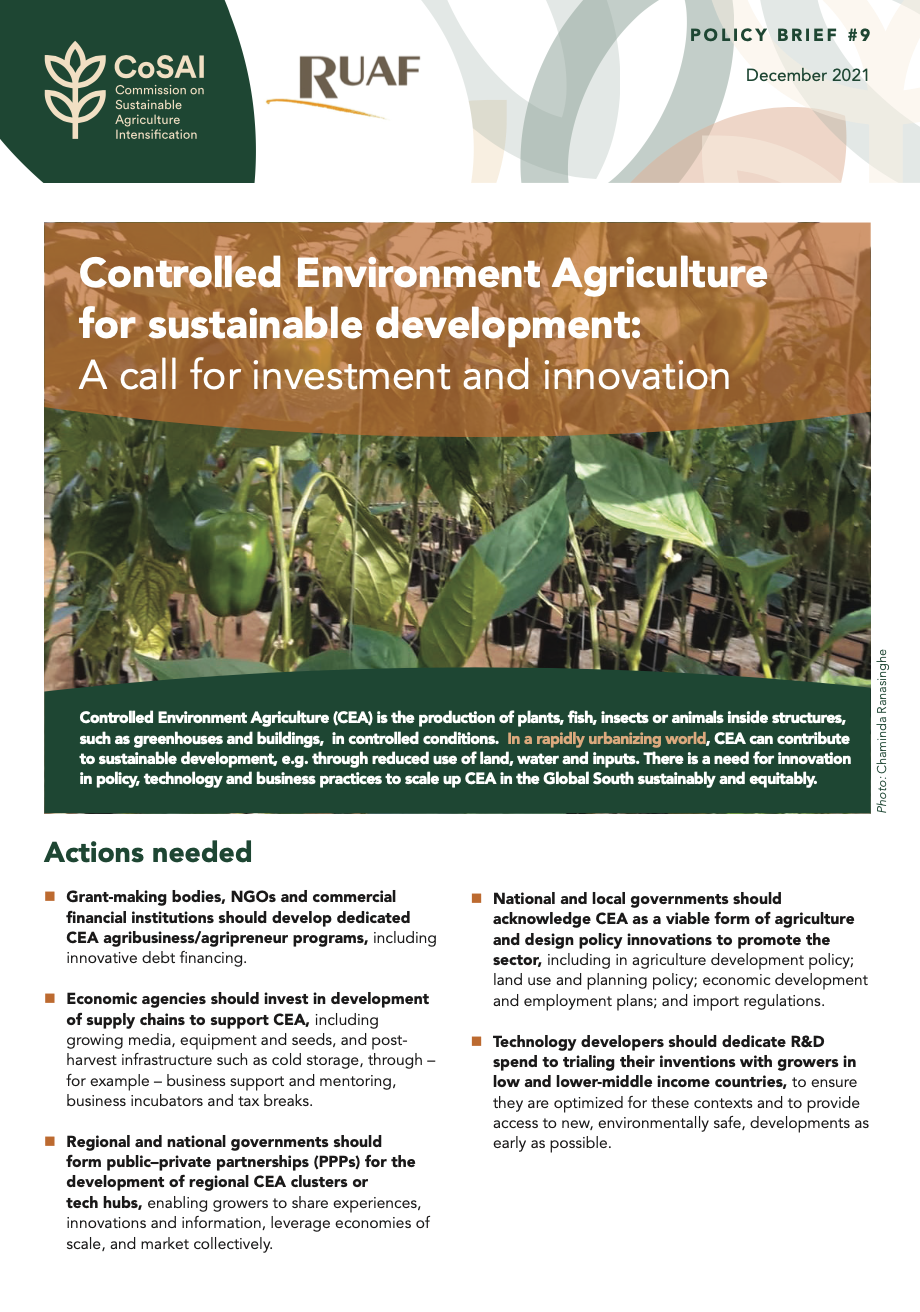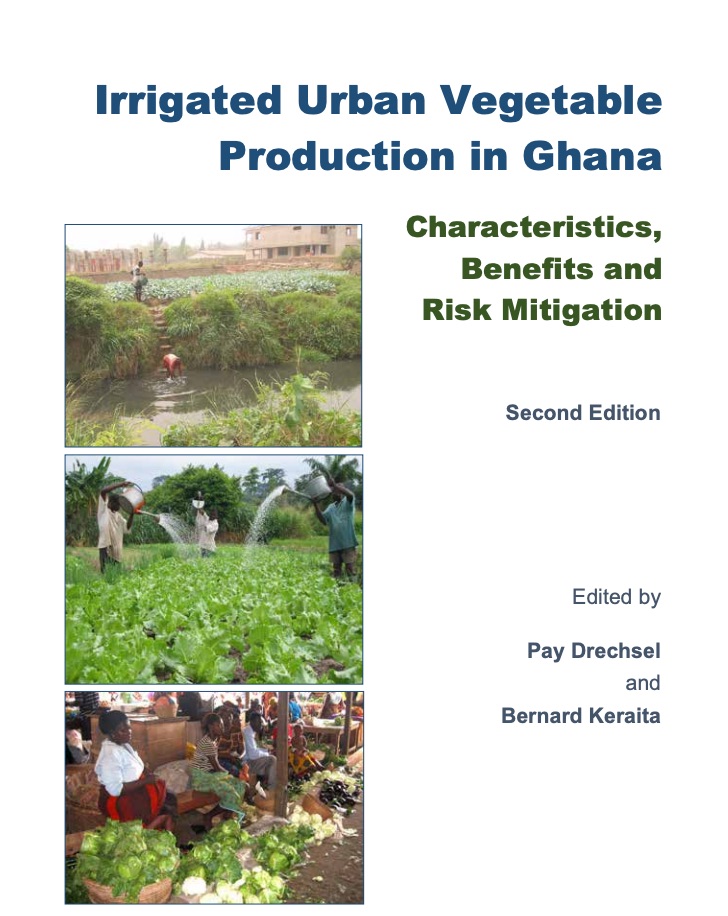Archives: Documents
-

Urban Agriculture Magazine 39: Enabling Multiple Benefits of Urban Agriculture
The new issue of the Urban Agriculture Magazine delves into the critical role of urban and periurban agriculture (UPA) in addressing global challenges and its multifunctional benefits beyond food production.
-

Urban and Peri-Urban Agriculture for Strengthening Pro-Poor Resilience in Asian Cities: Investment Needs and Opportunities
This report responds to several trends in Asia and the Pacific which have been increasingly recognized in the region. Together with rising urban poverty, the number of urban residents facing food and nutrition insecurity is increasing despite spending the majority of their earnings on food purchases. The COVID 19 pandemic has added greater stress to…
-

Urban Agriculture Magazine 38: 20+ years of RUAF
The new issue of the Urban Agriculture Magazine analyses five key work areas for the coming decade: Resilience, Social inclusion, Urban and Peri-urban Agriculture, Urban Planning, and Governance. Resilience Food systems around the globe are highly vulnerable to the impacts of multiple hazards, including climate shocks, natural events, global warming, and pol itical instability. People,…
-
Putting justice, equity and human rights at the core of global climate action
This white paper outlines the ambition, approach and Theory of Change of one of Hivos’ three impact areas: Climate Justice. Hivos works with key rightsholder groups and social movements from the Global South in putting their priorities and agency at the center of global climate action. By forging multi-stakeholder partnerships and building on our track…
-

Controlled Environment Agriculture for sustainable development: A call for investment and innovation
Controlled Environment Agriculture (CEA) is the production of plants, fish, insects or animals inside structures, such as greenhouses and buildings, in controlled conditions. In a rapidly urbanizing world, CEA can contribute to sustainable development, e.g. through reduced use of land, water and inputs. There is a need for innovation in policy, technology and business practices…
-

Irrigated urban vegetable production in Ghana: characteristics, benefits and risk mitigation
This second edition has been completely revised and updated, with new chapters and about 90 more pages to give a comprehensive overview of urban and peri-urban vegetable farming in and around Ghana’s major cities.
-
Strategic direction 2018-2023
Every five years the RUAF Global Partnership reviews its strategy. For the period 2018-2023, the RUAF Global Partnership supports and promotes knowledge exchanges between cities and towns on specific issues of sustainable food systems.
-
A food systems assessment of the Sustainable Diets for All programme in Uganda and Zambia
A holistic food system approach involving all stakeholders is key to solving the urgent and interconnected challenges that our world is currently facing. A new retrospective study shows the degree to which the program’s Food Change Labs in Zambia and Uganda used systems thinking to successfully kick-start the transformation of local food systems in these…
-
Agency and advocacy in the food systems of the majority
Interventions to improve the sustainability and nutrition of food can be misdirected when based on assumptions about people’s priorities and level of knowledge. When citizens have the capacity to act on their own priorities — in other words when they have agency — there is the potential to achieve better and more durable outcomes. This…
-
Multi-actor initiatives in action: Lessons from the Sustainable Diets for All programme
This reflection paper documents the results of three multi-stakeholder initiatives (MAIs) that have come about through Hivos and IIED’s Sustainable Diets for All programme: the Food Parliament in Buikwe, Uganda; the Food Change Lab in Zambia; and the La Paz Food Council in Bolivia. The paper aims to strengthen our understanding of MAIs by showing…
